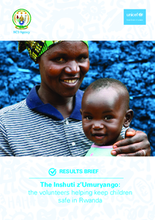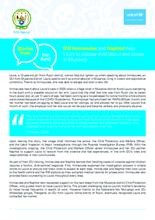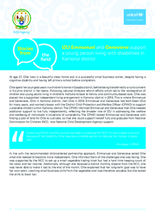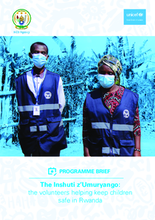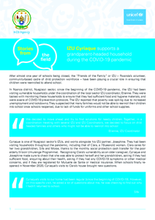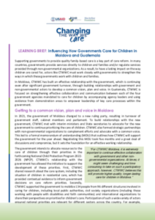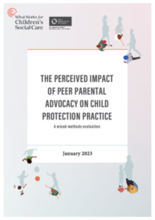Displaying 81 - 90 of 1796
During this webinar, participants explored the theological dimensions of child-family separation. Is there a theology of the child within the Christian faith? How has the care and protection of children been understood within Catholic social teaching?
Deneisha Moss, Programme Lead for Institute on Statelessness and Inclusion Children’s Programme at CHIP explains the importance of protection the identity rights of children.
This brief presents the results of several assessments of the ‘Friends of the Family’ or ‘Inshuti z’Umuryango’ (IZU) initiative in Rwanda. IZU is a frontline volunteer cadre introduced in 2016 as part of Rwanda's national child protection system strengthening and care reform efforts.
This case study details how IZU Immaculee and Naphtal help Laura to escape child labour and abuse in Musanze, Rwanda.
This case study details,how IZU Emmanuel and Genevieve supported a young person living with disabilities in Kamonyi district, Rwanda.
This brief outlines the background to, rationale for, and objectives of the ‘Inshuti z’Umuryango’ (IZU) or ‘Friends of the Family’ programme in relation to Rwanda’s wider child protection strategy.
In this case study IZU Cyriaque supports a grandparent-headed household during the COVID-19 pandemic.
This learning brief was developed as part of the CTWWC 2021 annual report and shares learning from two demonstration countries, Moldova and Guatemala. It showcases how care reform is led by government and how to influence different government actors.
El objetivo fundamental del presente libro es el análisis comparativo de las políticas, prácticas e investigaciones en relación a los sistemas de protección infantil en diversos países de América Latina y Europa. Las distintas experiencias recogidas en el texto esperamos contribuyan a aportar a la escasa literatura existente sobre el tema en Iberoamérica, pese a su enorme relevancia para los distintos intervinientes, investigadores, comunidad profesional y tomadores de decisiones.
This report presents the findings from a mixed-methods evaluation of peer parental advocacy (PPA) in the London Borough of Camden.

